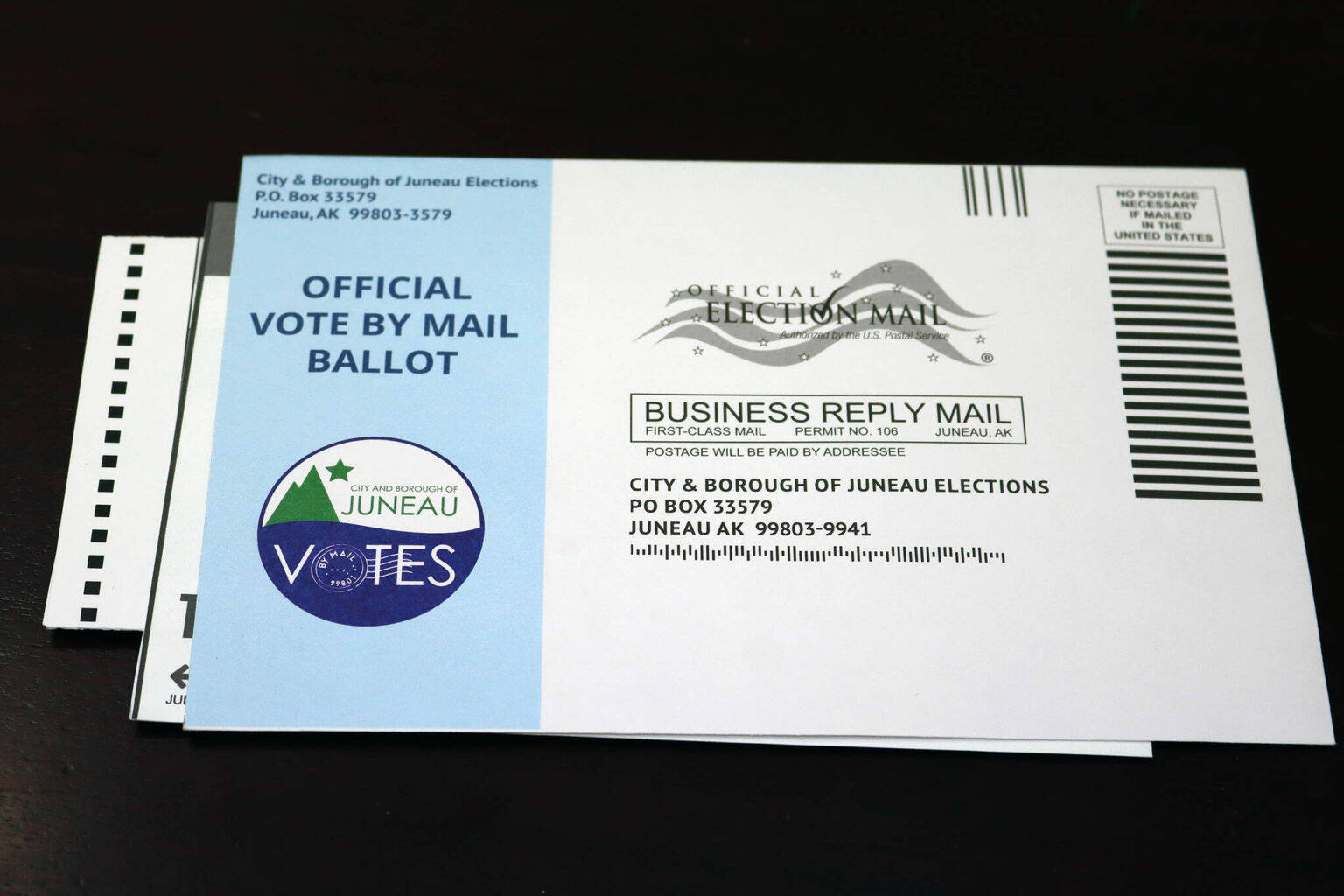Following the publication of this article candidate Paul Kelly informed the Empire his campaign treasurer submitted a corrected Alaska Public Office Commission report on Wednesday, Oct. 20, 2021. Kelly’s reported a total of $11,957 in income and 9,571.89 in expenses, making his campaign the second most expensive in this election. The article has been updated to reflect the change.
An Empire review of campaign disclosure documents for the recent municipal elections in Juneau showed a wide discrepancy in spending between candidates and some filing missteps from first-time candidates.
Spending
Expenditure reports from the Alaska Public Office Commission show candidate Barbara ‘Wáahlaal Gíidaak Blake far outraising and outspending any other candidates in Juneau’s recent municipal elections. According to the most recent results, Blake was leading her race for Assembly District 1, with more than double the number of votes for the next highest candidate, Paul Kelly.
According to APOC documents, Blake’s campaign reported a total of $35,438 in income through the most recent reporting date, Sept. 25, and total expenditures of $26,148.
Campaign reporting for the statewide municipal election began Feb. 2, 2021, according to APOC, and the latest reporting period ended Sept. 25. The next reporting period for candidates covers Sept. 26 – Jan. 3, 2022, and will be released in January 2022.
The next highest candidate spending, according to state records, came from Paul Kelly, whose campaign reported total expenditures of $11,957 but a campaign income of $9,571, through Sept. 25.
According to filings with APOC:
■ Troy Wyut-Smith’s campaign took in a total of $1,570, through Sept. 25, and spent a total of $1o,499.
■ Kelly Fishler spent the third most, spending $5,154 through Sept. 25, with a total campaign income of $6,419.
■ Mayor Beth Weldon, who ran unopposed, reported $1,496 in expenditures through Sept. 25, and $600 of income. As an incumbent, Weldon entered the race with $3,521 already on hand.
The beginning cash on hand segment shows total funds for any given campaign or election cycle, said Charles Stormont, APOC paralegal. Under state law, candidates that have leftover funds after an election are allowed to disburse a portion of these funds to a Future Election Campaign Account with a maximum of $5,000 for municipal office, Stormont said in an email.
[UA president: No systemwide mandate for now, but vaccine requirement coming]
Those funds that are allocated to the future campaign account can be held there as long as the candidate likes, Stormont said, and the funds in that account will have an annual reporting requirement due by Feb. 15 of each year until they are fully disbursed.
Paperwork problems
According to APOC, candidates intending to spend less than $5,000 on their campaign can file for an exemption to campaign disclosures. Exemptions were granted to Ibn Bailey, Thomas Buzard, Michelle Bonnet Hale, Will Muldoon, Kyle Scholl, Elizabeth Siddon and Aaron Spratt, APOC records show.
No financial disclosure documents or exemption forms were found for Wiljordan V. Sangster.
That is a violation, but as a first-time filer there won’t be a fine, according to Tom Lucas, campaign disclosure coordinator at APOC. First-time candidates receive a notice of violation and are informed of what the civil penalty could be. In this case, Lucas said the fine for not submitting disclosure or exemption forms was $50 a day until it was filed.
Lucas said in a phone interview Tuesday APOC would also notify Sangster, Spratt and Buzard about an improperly labeled campaign advertisement in the Sept. 2, 2021 edition of the Empire
Together Sangster, Spratt and Buzard placed an advertisement in the Sept. 2, 2021 edition of the Empire for a joint campaign event which Lucas said didn’t fully disclosure who paid for the message. The advertisement says, “paid for by the candidates,” but Lucas said campaign ads must give the names and addresses of the payers. However, Lucas noted the violation was not something he would be inclined to file a formal complaint about, though if a citizen or employee were to file a complaint an investigation would have to be conducted.
Lucas said that the Empire hadn’t violated any laws or regulations by running the ad, but that news outlets try to inform candidates when their ads are mislabeled. An Empire advertising representative was told of the oversight and will notify candidates of future omissions.
Sangster, Spratt and Buzard did not respond to multiple requests for comment.
• Contact reporter Peter Segall at psegall@juneauempire.com. Follow him on Twitter at @SegallJnuEmpire.

